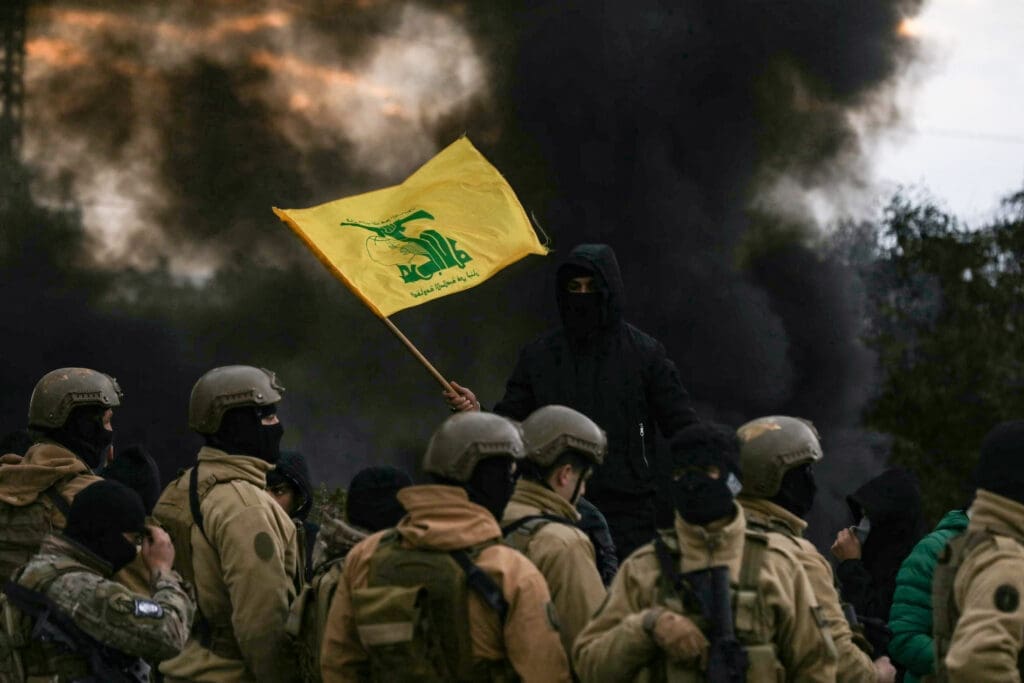Since August, the Lebanese Armed Forces (LAF) have been under instructions from their government to present—by year’s end—a plan to bring all weapons in the country under state control. The directive is mainly targeted at Hezbollah, the Shia-led militia that had in recent years grown more powerful than the national army. Yet for decades, Lebanon’s myriad sectarian groups have flaunted state sovereignty by operating militias of their own. As such, the government’s latest move, which was taken under the auspices of the United States, exposes the yawning gap between ambition and capacity. After it was announced, four Shiite ministers walked out of the cabinet session and Hezbollah denounced the measure as a “grave sin.” Not surprisingly, the roadmap that was submitted in early September lacked any credible timeline or enforcement mechanism.
Beneath the headlines lies a deeper problem: Disarmament is currently being advanced under heavy American pressure, and while Israel regularly bombs Lebanese territory, despite a year of nominal ceasefire. The state is also being pushed to discuss normalization with Israel in exchange for an influx of aid and quiet on its border. In such circumstances, disarmament becomes less an affirmation of sovereignty than a surrender of agency.
True sovereignty is rarely handed over in a signature. It grows from three interconnected foundations: a credible state monopoly of force; functioning, solvent institutions; and legitimacy broad enough to bind communities to the state. Lebanon lacks all three. Instead, external coercion is driving policy, turning the state from a sovereign actor into an instrument.
This carries real dangers. If the state attempts to disarm Hezbollah before rebuilding its own administrative reach, stabilizing public services and restoring its fiscal independence, the real question, then, is not just who holds the weapons—it is who holds the credibility.
A State Under Fire
Lebanon’s security environment is unusually fragile. Israel’s 2024 bombing campaign killed thousands of people, displaced more than a million, and inflicted billions of dollars’ worth of damage to infrastructure. A ceasefire announced in late November did not end Israel’s attacks; the southern front remains tense and punctuated by Israel’s targeted killings. To the east, the collapse of Syria’s Assad regime in December did not stabilize the border. Armed groups operate and clash in loosely governed spaces, and smuggling networks continue to thrive.
Inside Lebanon, Hezbollah remains a powerful, parallel provider of security and services, particularly where the state’s footprint is thinnest. Externally, crucial military assistance is increasingly bound up with expectations that Beirut will “contain” Hezbollah and curb Iranian influence. Across these fronts, the question is less whether the government wishes to act than whether it can do so autonomously, credibly and without pushing the country into another spiral.
The LAF sits at the center of these expectations. The army is one of the few institutions perceived as cross-communal; in difficult moments, it has held the line against total state collapse. Yet its mandate and means are badly misaligned. The 2025 defense budget—a modest $800 million—is largely consumed by salaries and basic operations. Once these are covered, little remains for training, maintenance or modernization. Lebanon’s per-soldier and per-capita spending lags far behind its regional peers. The LAF depends on foreign partners for fuel, spare parts and much of its logistics. That dependence narrows its strategic options and magnifies political risk: A security plan whose viability hinges on external lifelines can be reshaped—or withdrawn—by actors whose priorities are not those of Lebanon.
Pushing an institution in this condition to deliver a sweeping disarmament of non-state actors courts two kinds of failure: If the LAF fails operationally, it will deepen public cynicism; if it overreaches, it will invite confrontation that the state is not equipped to handle. In both cases, the goal of a unified authority becomes increasingly distant.
Embracing Neutrality?
Lebanon has long suffered as a battleground for regional rivalries, leading that the country should embrace neutrality to escape regional entanglements and better reflect its pluralist society. But neutrality is not simply declared—it must be financed, enforced and adopted genuinely. States that sustain it invest in defense and diplomacy, professionalize their security sectors, and cultivate public trust that grants them broad authority. Lebanon lacks the fiscal strength, institutional depth and political cohesion to support such a posture. In this context, calls for neutrality risk becoming neutralization—a posture that masks subjugation to external power rather than asserting sovereign distance. Genuine neutrality would require a paradigm shift in institutions, finances and regional acceptance, none of which exist. Otherwise, it becomes a slogan that obscures the hard work of rebuilding state capacity.
Before the Lebanese state can realistically start disarming militias, it has to restore legitimacy. Citizens support the state when they receive protection and services without partisan mediation. That requires politics that dilute sectarian patronage; courts that uphold equal treatment; and a civil service that functions on merit rather than clientelism. The effects would be visible in uninterrupted electricity, regular waste collection, bribe-free permitting and lawful, predictable border controls—tangible signals that the state exists beyond factional competition.
From this foundation, the state must expand its capacity through fiscal reform. A fairer tax system that broadens the fiscal base, captures undertaxed wealth, and funds public goods is essential. External support will remain necessary, but it should strengthen procurement, logistics and maintenance rather than substitute for them. For the LAF, that means predictable resources for training and sustainment, clear civilian oversight, and rules of engagement that safeguard its reputation for impartiality. An army asked to do less but do it better will ultimately be able to do more.
As legitimacy and capacity begin to reinforce each other, the security landscape changes. Communities long reliant on non-state actors for services and protection gain a credible alternative. The political rationale for armed groups weakens when the state is a reliable daily provider rather than a distant abstraction. Disarmament then becomes a negotiated outcome grounded in a changing social contract—not a zero-sum confrontation.
Lebanon’s choices are unfolding amid persistent regional turbulence. The challenge is to preserve enough space for autonomous decision-making while navigating pressures that seek to fold the country into externally defined “stability” arrangements. A credible foreign policy would rest on steadiness, legality and sovereignty—prioritizing border protection, regional de-escalation anchored in international law, and partnerships that reinforce rather than reshape state institutions. Genuine assistance should help rebuild institutions and support public accountability, not trade reform for compliance.
International actors also have choices. Reconstruction finance without credible guarantees against future Israeli attacks will sit on unstable ground. Military assistance calibrated primarily toward regional power struggles will only deepen Lebanese dependency. The more external support rewards performance—measured in maintenance completed, logistical backlogs cleared, response times reduced—the more it will build sovereignty rather than manage fragility.
Defining Success
Near-term success means a Lebanese army resourced for missions it can credibly perform; courts that rule according to law rather than allegiance; and public agencies that deliver electricity, water and street lights reliably. In the long term, as the state consistently occupies a meaningful place in people’s lives, debates over who holds weapons lose their intensity.
Attempts to disarm Hezbollah without political, economic and institutional transformation will likely provoke communal backlash and further weaken the state. Although Hezbollah’s autonomous military posture is incompatible with a sovereign national defense policy, its support base—shaped by state failure, insecurity, historical marginalization and repeated external attacks—cannot be dismissed. Many Shiite view its arms not simply as leverage but as a security guarantee in an inequitable system.
Disarmament should therefore be the culmination of state rebuilding, not its precondition. If the state can defend its borders, uphold citizens’ rights, deliver services and integrate all communities in a national framework, the rationale for having arms outside state control will erode. Lebanon’s recent assertion of state sovereignty will only be realized if state capacity and legitimacy are rebuilt first. Coercion without credibility is divisive; capacity without legitimacy fuels cynicism; declarations without delivery breed contempt.
Sovereignty emerges when force, institutions and consent converge. If Lebanon can get the sequence right, it will not need to claim sovereignty. Its citizens will recognize it.
Authors’ note:
This essay is based on the paper Security Without Legitimacy: The Limits of Sovereignty from Above, by Joseph Daher, Sami Zoughaib, and Sami Atallah, produced by The Policy Initiative in collaboration with Friedrich-Ebert-Stiftung (FES) Lebanon.




